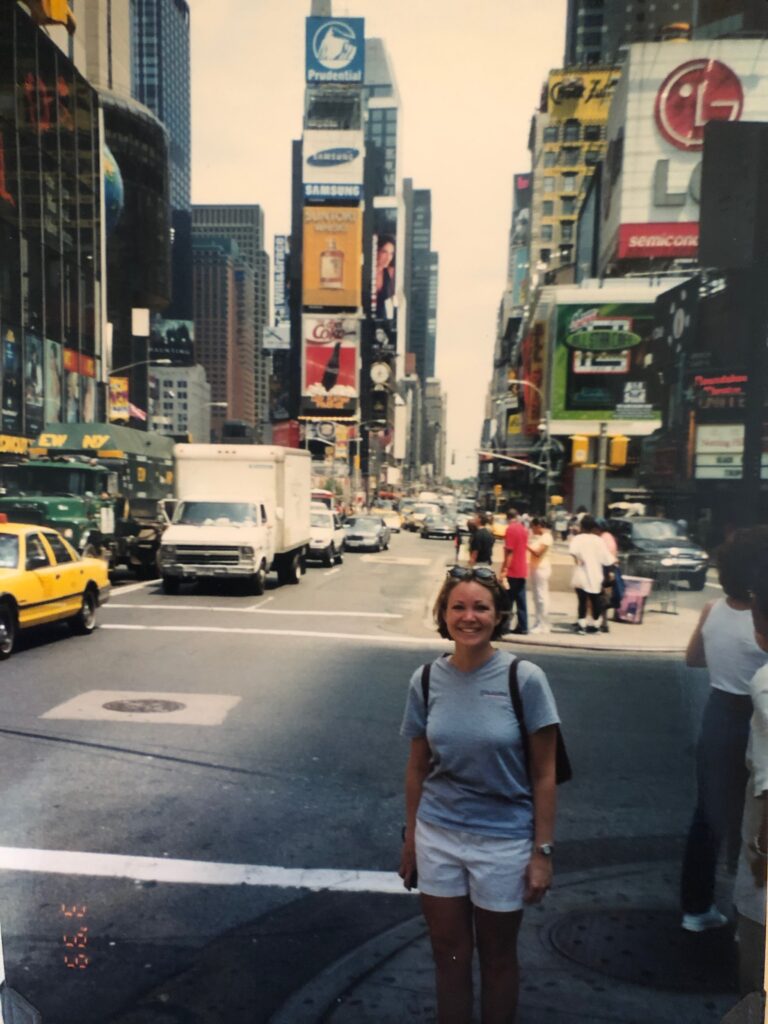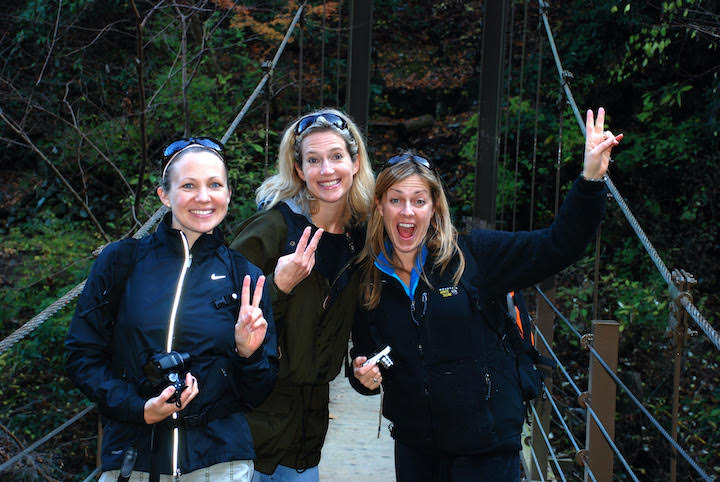It goes without saying that culture shock is part of the territory when relocating abroad — perhaps even bookended by reverse culture shock when repatriating years later! But another common challenge, far less discussed, is the culture shock you’ll experience within your own expat community.
You would think that being American would be enough to fit into an American community overseas. We’re just one big melting pot out of our element together, right? In my overseas assignments, however, I’ve observed social differences that seemed related more to regionality, rather than nationality. For example, many of the U.S. expats I met in Tokyo had transferred there from NYC’s finance industry — a culture equally foreign to an American from rural Oregon.
In light of current political divisions in the United States, and with a year of repatriation giving me the benefit of hindsight, I believe these fractures merit closer inspection.
Big City vs. Small Town USA
Like many Americans, I had an “aha” moment on Election Night this past November. I had been back home for 16 months after living in Amsterdam, so I was feeling more or less acclimated while glued to the television watching the #ChartThrobs in front of their interactive maps of red, blue, and purple states. As CNN’s John King zoomed into his magic wall to show county-by-county polling results, it dawned on me: the culture shock I had encountered among expats overseas had far more to do with your hometown’s size than from which U.S. state you had emigrated.
In hindsight, I had already experienced intra-American culture shock on a micro-level at the University of Oregon when my roommate proudly diagnosed me with a speech impediment. Specifically, an articulation disorder outlined in her speech pathology textbook. She was from Oregon’s wealthiest county and was brilliant — she would later go on to be one of the youngest elementary school principals in our state — and had evidence, after all. I accepted her judgment and desperately tried to enunciate clearly going forward to sound more like her and our classmates.
When I arrived in Tokyo 20 years later for my husband’s job transfer, the New Yorkers were plentiful — and so were their opinions on my rural accent, delivered in the form of honest banter:
“Wait, you don’t hear it? You say ‘fir’ instead of ‘for.’”
“You talk slower too.”
“You even walk slow.”
While staring into those zoomed-in blue/red state and county maps in November, I realized that America’s political divide and my personal experiences both demonstrated the schism between people from big cities vs. small towns, rather between states. It even made sense that the types of social interactions are less personal in more densely populated places, whereas someone like me, coming from “the sticks,” would never have the confidence to bring up anyone’s perceived deficiency face-to-face or within a group setting.
Looking back, I could have mitigated the severity of my intra-American culture shock by educating myself before becoming a trailing spouse overseas — about my homeland as well as my new home.
Broaden your domestic horizons
I used to think international travel was a must. Now, I put just as much importance on domestic travel. Aside from a sliver of the West Coast, I hadn’t experienced much of my own country before embarking on life in an entirely new one 11 years ago. After a decade of overseas living, and considering the travel restrictions imposed by COVID-19, I’ve focused on road trips to U.S. national parks — including two new states explored last year, and two more on my bucket list scheduled for this spring.
A beautiful country is never homogeneous; it is woven together with many different fabrics. Put a better way by a Muslim proverb, “A lot of different flowers make a bouquet.” Domestic travel allows you to explore your own nation’s richness — different speech patterns included! — and understand its regional values.

If you’re on the brink of your first overseas assignment, try to get one last domestic trip in before leaving, to a place vastly different from your home base. Are you from a predominately white county? Go somewhere more diverse. Are you from a coastal community? Go explore someplace inland. Sample the traditional cuisine, engage in local conversations, and experience day to day life beyond the tourist attractions.
Study Your expat community
Before heading overseas, try to find out about your host city’s primary industry and how that relates to which part of America may be dominant in the expat community. As I mentioned previously, Tokyo is full of New Yorkers — which makes sense, given its importance as a financial hub. Shanghai, on the other hand, has a robust automotive industry that draws many Midwesterners, especially Michiganders.
With a little research, you can educate yourself on your fellow Americans cultures — and avoid gaffes. For example, I didn’t know that Michiganders held up their hand to mimic their state’s shape when asking, “Where you from?” The first time this happened, I proudly stated “Oregon” and gave my new acquaintance’s hand a high five! Taken aback, she then informed me she was from Midland, pointing to the fleshy part of her palm between her index finger and thumb.
Keep your mind open
With any relocation, it’s important to be curious and ready to learn — not just about your new home, but even about your old one. Be inquisitive and open-minded, and consider your perceptions vs. reality carefully. You may be surprised by what you can learn from your fellow Americans (or whichever country your passport represents).
From Michiganders, I’ve learned to trust people at their word; from New Yorkers, the value of honesty and efficiency with a slightly quicker pace and decisiveness in conversations. In return, I hope I contributed Oregon’s joyful pursuit of outdoor sports and environmental awareness.

Starting out on the sidelines, you may watch other Americans from similar communities bond quickly, making you feel even doubly like an outsider. Don’t automatically try to change your walking pace or speech patterns, however. Being a charlatan is exhausting! Own your differences, whether it’s a regional accent or what others perceive to be an odd compulsion to reduce, reuse, and recycle. Whether it’s primarily as Americans or expats or trailing spouses, you’ll inevitably forge friendships as you explore your new surroundings together and share the traditions from back home.
It sounds strange, but being surrounded by people who are difference is a great way to really learn to be yourself. While you may opt to change or polish some parts of yourself, it takes integrity and transparency to hold on to your core identity when you’re in the minority. By the end of our three-country tour, I was embracing the small-town roots that had set me apart in the very beginning, becoming unapologetically proud of who I am.
Embrace your experiences
There’s a long list of things to plan for and get used to when you’re moving to a new country. Major challenges like language barriers and work permits get a lot of attention, but don’t underestimate the intra-American (or whichever country you’re from) culture shock. In my case, I wasn’t prepared, but I ended up feeling grateful for it.
As noted in my previous blog entry about how expat life prepared me for navigating the challenges of a global pandemic, community is a huge success factor in any relocation assignment. Get excited about meeting a whole new America outside its borders — one that’s well worth exploring! You’ll thank me “fir” it.

